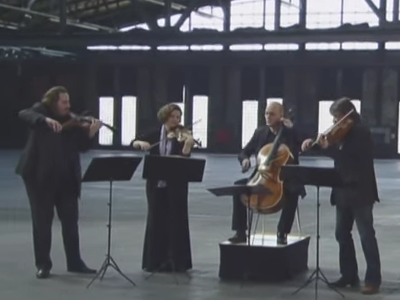
It’s the opening to the slow movement from Quartet No. 16, Opus 135, in which Beethoven wrote in the score, “Must It Be? -- It Must Be!”
Each instrument enters one at a time to create a gorgeous D-flat chord. It’s an ordinary major chord, but that arrangement and the pacing pulls me in every time I hear it.
When I’m not working as a radio host, I also work as a jazz pianist. I’ve learned to hear complex rhythms, and dissonant harmonies.
However, my personal taste tends toward musicians who have the ability to play some of the most complex music imaginable but instead make choices to leave space in the music.
The musicians I look up to the most choose to play as few notes as is necessary. (A perfect example is Bill Evans).
This is a big part of why I love this movement from Beethoven’s Quartet No. 16.

late string quartets, Beethoven takes the form somewhere completely new: larger in scope, and more complex rhythmically and harmonically than anything before. But this last quartet is more sparse and less complex than many of his other late compositions.
And with this movement, which is essentially a six-minute hymn Beethoven called a "Sweet Song Of Rest or Peacefulness," the Master speaks to me, with something new every time.









